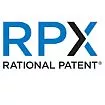- within Intellectual Property topic(s)
- in United States
- with readers working within the Technology industries
- within Litigation and Mediation & Arbitration topic(s)
May 25, 2024
Proxense, LLC has added a Western District of Texas case against Intel ( 6:24-cv-00283) to a campaign with suits currently active against Alphabet (Google), Apple, and Microsoft there. District Judge Alan D. Albright has just handed down two claim construction orders, one in the case against Google and the other in the case against Microsoft. A single patent from the five now in suit against Intel appears in those orders, while the other four are new to the campaign. Targeted against Intel is the provision of devices, ranging from processors to wireless adapters, that support Wi-Fi 6 and later, as well as those that provide Trusted Platform Module (TPM) functionality as required by the Microsoft Windows 11 operating systems.
Proxense began litigating in June 2019, suing CVS, J.C. Penney, Macy's, Nordstrom, Target, Walmart, and Urban Outfitters over beacon systems and related apps. The last active retailer case, against Target, closed in May 2022. Until that Target suit, Proxense had been filing in the Northern District of Illinois, but then shifted to the Western District of Texas, where the Target litigation was, as well as where all the suits have been filed since, including a June 2021 suit against Samsung, which approached the eve of trial.
Judge Albright presided, later using his experience with Proxense's asserted portfolio as part of the rationale for denying a motion to transfer the case against Google, for convenience, to the Northern District of California. Google sought mandamus review of that denial, but in early April 2024 the Federal Circuit refused to reverse Judge Albright, commenting that he "reasonably found that judicial economy considerations disfavor transfer in light of the trial court's familiarity with the patents and technology from its substantial involvement with prior litigation".
As noted, only one (8,352,730) of the five patents (8,036,152; 8,219,129; 8,457,672; 9,265,043) now in suit against Intel has appeared previously in this campaign. That patent is broadly directed to biometric authentication on an "integrated device", with infringement allegations against Intel focused on processors that include a TPM. The other active defendants, as well as Samsung, were also accused of infringing the '730 patent, disputed claim terms from which were construed in Judge Albright's recent order, as well as in an earlier claim construction order (dated in January 2022) from the Samsung case.
The '152 patent generally relates to using a timer to switch a wireless transceiver between an "active" and "sleep" mode; the '129, '672, and '043 patents, to wireless data exchange between a "client device" and a "proximity-based reader device". Proxense accuses Intel of infringement of all four patents through the provision of adapters, gateways, and integrated processors that support Wi-Fi 6 and later.
Proxense's various complaints emphasize the biography of named inventor John J. Giobbi, the company's founder and CEO. Per Proxense, Giobbi is "an experienced product designer and prolific inventor . . . with over 35 years of experience as an entrepreneur and product development executive". Giobbi identifies past positions with WMS Gaming (vice president for product development from May 1995 to January 2002) and with companies that he formed before then, Prelude Technology and InPen. Current USPTO assignment records identify roughly 75 patent assets in Proxense's possession, with Giobbi as a named inventor for most of the patents.
The plaintiff pleads that it was founded in 2001 as a "limited venture" later "formally incorporated in 2005 as an LLC", which Delaware state records confirm (in September of that year). It also emphasizes the company's technology development, the "foundational capabilities" of which are described as including "a secure element, biometrics captured and stored thereon, retrieval of biometrics and token passing to a trusted third party, and completion of a mobile payment transaction". Proxense pleads that it "developed sophisticated, proprietary, proximity-based detection, authentication, and automation technology", termed "'ProxPay' technology", that "also included biometrically based user and device authentication options, the ability to conduct biometric-verified transactions without sending or exposing the underlying biometric data or storing it anywhere except the [personal data key (PDK)], and the incorporation of a registration for maintaining or verifying the PDK". The company also reportedly once developed ProxNET, a "wireless [healthcare] system that runs hands-free, instant sign-on/sign-off and real-time location system (RTLS) applications simultaneously on a single, multi-purpose network".
Additional background concerning this campaign, including a summary of events that brought the Samsung case to a close, can be read at "Biometric Authentication Campaign Turns to Apple" (March 2024). A patent assertion grid is available on RPX Empower. 5/23, Western District of Texas.
The content of this article is intended to provide a general guide to the subject matter. Specialist advice should be sought about your specific circumstances.


